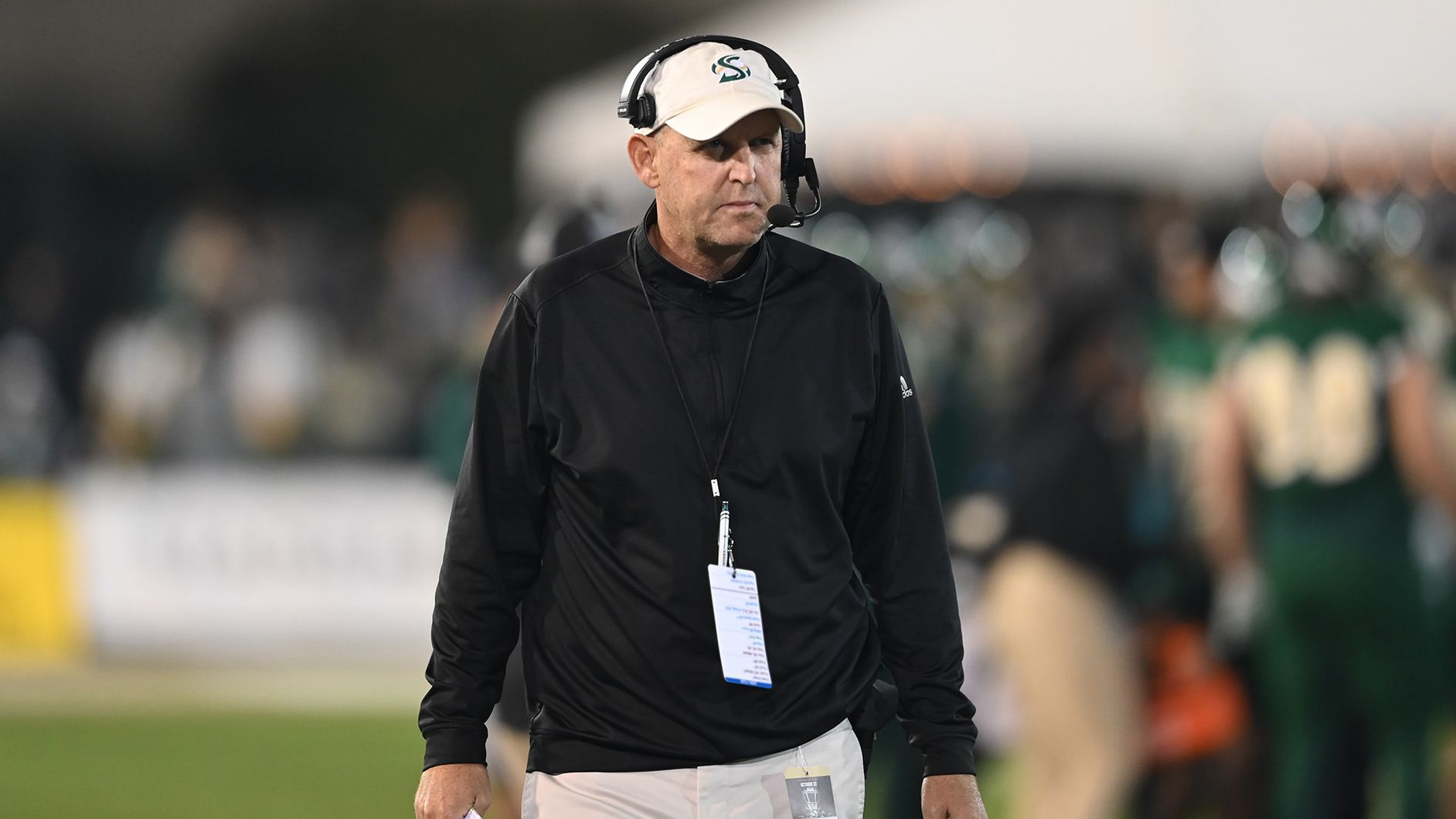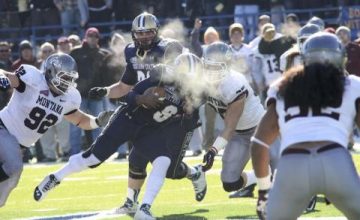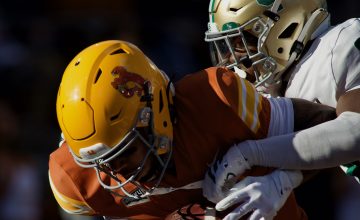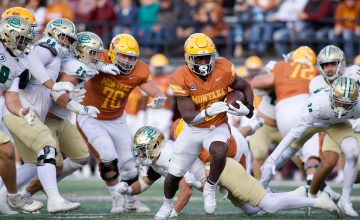Less than 12 hours after the end of Sacramento State’s deliriously overwhelming 66-63 loss to Incarnate Word in the FCS quarterfinals – one that saw 57 combined points scored in the fourth quarter alone – the worst-kept secret in Northern California was officially out: Troy Taylor was leaving the Hornets to be the next head coach at Stanford.
“This is my final destination, my final chapter in coaching in my life and I hope it’s for a very long time,” Taylor said at his introductory press conference in Palo Alto.
That ended a saga that saw Taylor going head-to-head with Jason Garrett as the finalists for the head job with the Cardinal. A decade ago, Garrett was enjoying a run as the boy genius coach of the Dallas Cowboys. Taylor was providing color commentary for broadcasts at his alma mater, Cal. But when Garrett announced Thursday night that he was no longer interested in returning to coaching, Stanford ended up casting its future with the former record-setting quarterback for Stanford’s biggest rival.
It was the latest domino to fall in what’s been a scrambled offseason of activity on the coaching carousel in the Big Sky Conference. With five head coaches gone from the league and (to date) four new ones hired, the past few weeks haven’t just been a reminder of how quickly things can change at this level – they also have the potential to drastically reshape the conference far into the future.
And while coaching turnover isn’t uncommon in the Big Sky or the FCS, having five coaches leave within a single offseason with only one getting fired was eye-opening to be sure. Plus, to see three of the most accomplished coaches in the league over the last decade abruptly bounce is also striking.

On November 21, Northern Colorado and Ed McCaffrey parted ways after the Bears’ two-year experiment in the power of celebrity dissolved with back-to-back three-win seasons and several unflattering (and sometimes unbelievable) reports coming out of Greeley.
Two of the conference’s recent doormats saw the figureheads of their perpetual rebuilding projects – Beau Baldwin at Cal Poly and Charlie Ragle at Idaho State – end up together on Kenny Dillingham’s new staff at Arizona State. Each won one game last season.
And Weber State’s Jay Hill – think Taylor, only defense instead of offense and a few more years along the track of turning one of the conference’s downtrodden teams into a juggernaut – decamped from Ogden to take the defensive coordinator job at BYU.
Altogether, it was a harsh, weeks-long reminder of the Big Sky’s place in the college football ecosystem. These teams – especially Sac State and Weber State, who have each been legitimate FCS quarterfinal contenders recently (Weber even made the final four in 2019) – are very, very good compared to the vast majority of programs across the country. But they’re also inescapably, unforgettably below an entirely separate strata that plays by different rules.
Take Hill, who’s rumored to be making seven figures at his new job in Provo. Or Ragle, who made $205,000 last year to lead a program in Pocatello but might come close to doubling that as the special teams coordinator in Tempe.
“It is a business, and at the end of the day, I had to make a business decision that I thought was best for me and my family,” Ragle told the Idaho State Journal.
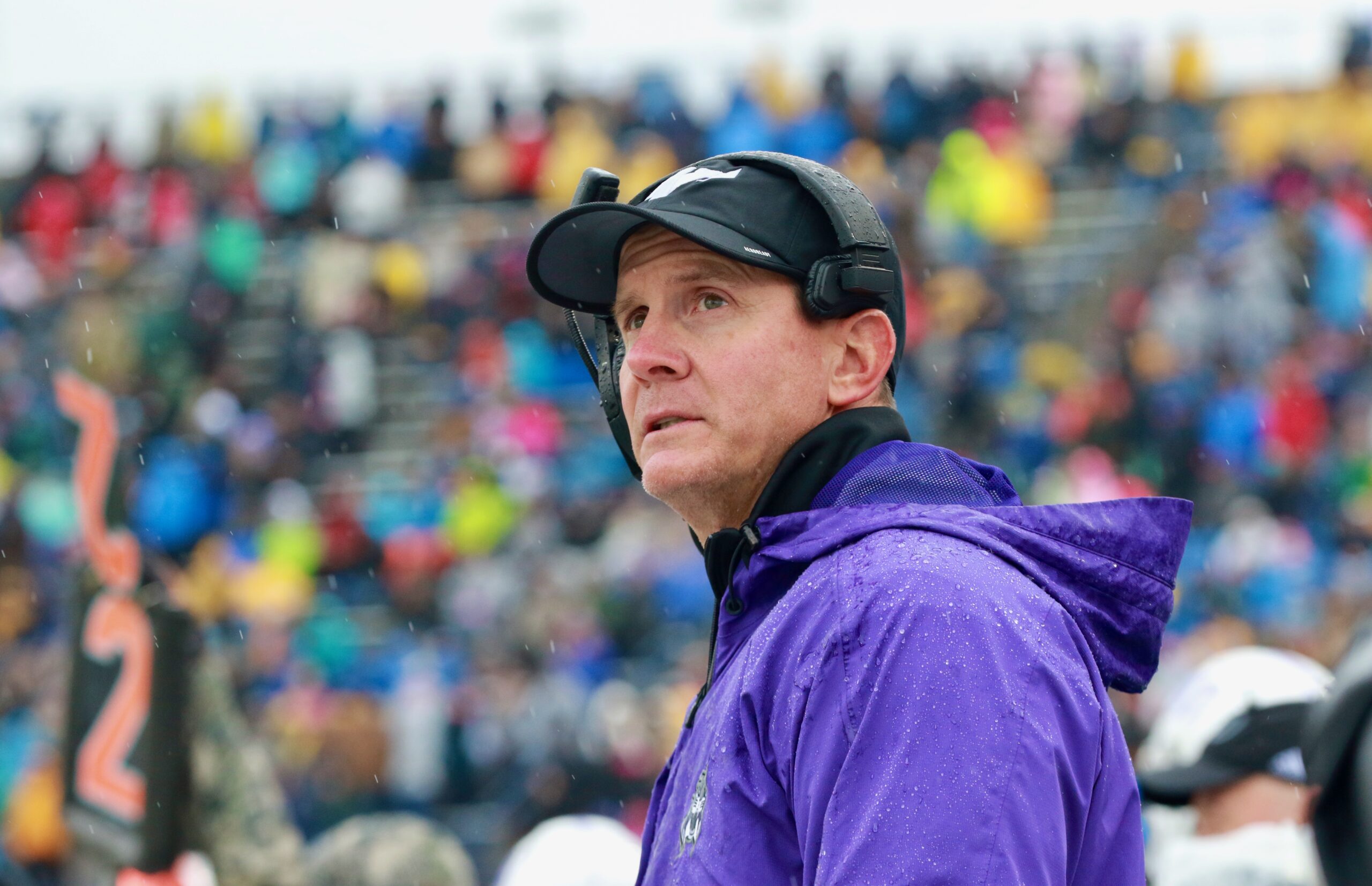
That’s the bleak truth of existence at the Big Sky’s liminal, ever-shifting level of college football. Life in the FCS is like Earth in the Jurassic – feral and brutal but also fertile with new ideas and fascinating gambles, constantly evolving out of necessity.
Adapt or die – just ask Montana, still looking for its first conference title in over a decade after a multi-generation run of steady success. It’s why Northern Colorado hired McCaffrey fresh out of high school (and got six wins in two seasons) and why Sac State hired Taylor just three years removed from high school (and got three straight conference titles).
This year, it was Idaho State taking the big swing when Ragle left after one season by hiring 34-year-old Cody Hawkins, thought to be the youngest head coach in Big Sky history.
“We’re gonna try to score 100 every game,” said the former Colorado Buffaloes quarterback, who’s been on his father Dan Hawkins’ staff at UC Davis since 2017. “But it’s about putting your kids in a position to be successful and playing in a way that really highlights their skill sets and gives our team an opportunity to be successful.”
Which brings us back to the potential consequences of this offseason. By hiring Hawkins, Idaho State is taking another shot to rise up the pecking order. So are Northern Colorado by hiring former Southern Utah head coach Ed Lamb and Cal Poly by promoting former Eastern Washington and Washington State head coach Paul Wulff.
The most seismic aftershocks, however, will likely be felt in Sacramento and Ogden, where the challenge is one of succession, not transformation.
Under Taylor, the Hornets won the first three Big Sky titles and made the first three FCS Playoff appearances in school history (they’ve been in the Big Sky since 1996). In his nine years in Ogden, Hill coached the Wildcats to six of their 10 playoff appearances (and six of their eight playoff wins) in an FCS history that dates back to 1978.
It was reported Tuesday afternoon that Sacramento State had promoted defensive coordinator (and former Griz linebacker) Andy Thompson to the top job. Meanwhile, early reports out of Ogden point to OC Mickey Mental or co-DC Grant Duff possibly getting a promotion for the Wildcats.

But even if those promotions work out, both programs are in the midst of learning a harsh lesson: holding on to what you’ve built is a constant fight for survival in an environment where a middling, if not tradition laden, FBS independent can offer your head coach a million dollars to be a defensive coordinator.
If that sounds grim, it is. It’s also true – and, in the end, that’s been the enduring lesson of this season’s ride on the coaching carousel. At this level, stability isn’t given. It has to be re-earned every year, fought for, over and over, against a swarming host of programs looking for the same thing. The last couple weeks have just happened to make that point particularly clear.
Photos by Brooks Nuanez. All Rights Reserved.

